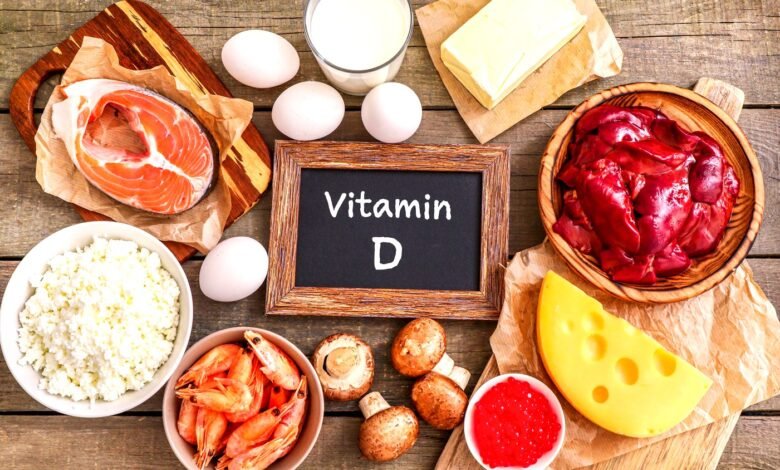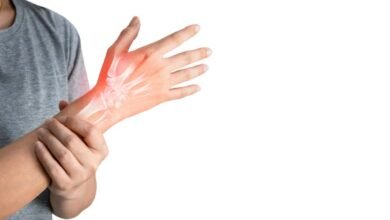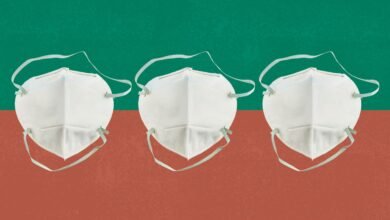Top 9 Natural Sources of Vitamin D

Vitamin D is an essential nutrient that plays a crucial role in maintaining good health. It is known as the sunshine vitamin because our bodies can produce it when our skin is exposed to sunlight. However, many people struggle to get enough vitamin D, especially those who live in regions with limited sunlight or have dietary restrictions. In this article, we will explore the top nine natural sources of vitamin D that can help you meet your daily requirements.
Vitamin D is vital for maintaining strong bones, supporting immune function, and promoting overall well-being. While sunlight is the most efficient source of vitamin D, there are various other natural sources that can supplement your intake.
Read More: Maximize Your Potential with Powerful Diet & Nutrition in 2023
Sunlight
Sunlight is the primary source of vitamin D for the body. When your skin is exposed to sunlight, it triggers a reaction that enables the production of vitamin D. Spending around 10 to 15 minutes in the sun a few times a week can provide your body with an adequate amount of vitamin D. However, it’s important to protect your skin from excessive sun exposure to prevent sunburns and skin damage.
Fatty Fish

Fatty fish like salmon, mackerel, and trout are excellent sources of vitamin D. These fish naturally contain high levels of the vitamin, making them an ideal choice for individuals looking to increase their intake. Just a single serving of fatty fish can provide a significant portion of your daily vitamin D requirement.
Cod Liver Oil

Cod liver oil is derived from the liver of cod fish and is known for its rich vitamin D content. It is available in liquid or capsule form and is often consumed as a dietary supplement. Cod liver oil not only provides vitamin D but also contains omega-3 fatty acids, which offer additional health benefits.
Egg Yolks
Egg yolks are another natural source of vitamin D. They are easy to incorporate into your diet and can be enjoyed in various dishes. Including eggs in your meals can contribute to your vitamin D intake, along with providing essential nutrients such as protein and healthy fats.
Mushrooms
Mushrooms, particularly wild mushrooms, are unique because they can synthesize vitamin D when exposed to sunlight, similar to human skin. While most mushrooms have low levels of vitamin D, certain varieties like maitake and shiitake can provide a significant amount. Including mushrooms in your diet can be a tasty way to boost your vitamin D levels.
Fortified Foods
Fortified foods are products that have nutrients added to them that are not naturally present. Many food manufacturers fortify their products with vitamin D to help individuals meet their dietary needs. Common fortified foods include milk, orange juice, breakfast cereals, and plant-based milk alternatives. Check the labels to ensure you are selecting products that are fortified with vitamin D.
Dairy Products
Dairy products like milk, cheese, and yogurt are not only a great source of calcium but also contain vitamin D. These products are often fortified with vitamin D to enhance their nutritional value. Including dairy products in your diet can contribute to your overall vitamin D intake while providing other essential nutrients for bone health.
Beef Liver
Beef liver is a nutrient-dense food that offers a wide range of vitamins and minerals, including vitamin D. It is essential to note that the vitamin D content in the beef liver may vary, depending on the quality and source. Consuming beef liver in moderation can provide you with a natural source of vitamin D, along with other beneficial nutrients.
Sunflower Seeds
Sunflower seeds are a lesser-known but nutritious natural source of vitamin D. These tiny seeds are packed with essential nutrients, including vitamin D. Incorporating sunflower seeds into your diet can provide a healthy dose of vitamin D, along with other beneficial vitamins and minerals. Enjoy them as a snack or sprinkle them over salads, yogurt, or oatmeal for an added nutrient boost.
Read More: 7 Most Common Sources of Hidden Calories
Conclusion
Vitamin D is an important nutrient that supports various functions in the body. While sunlight remains the best natural source, incorporating other foods into your diet can help ensure you meet your daily vitamin D requirements. Fatty fish, cod liver oil, egg yolks, mushrooms, fortified foods, dairy products, and beef liver are among the top natural sources of vitamin D. By including these foods in your diet, you can maintain optimal vitamin D levels and support your overall health and well-being.
Incorporating vitamin D-rich foods into your diet is an excellent way to maintain optimal levels of this essential nutrient. By ensuring an adequate intake of vitamin D, you can support your overall health and well-being. Remember to consult with a healthcare professional or nutritionist for personalized advice regarding your specific dietary needs.
FAQs
Can I get enough vitamin D from sunlight alone?
While sunlight is a primary source of vitamin D, it may not be sufficient for everyone, especially those with limited sun exposure or living in regions with less sunlight. Incorporating vitamin D-rich foods into your diet is recommended.
Can I take vitamin D supplements instead of relying on natural sources?
Yes, vitamin D supplements can be an effective way to meet your daily requirements. However, it is always advisable to consult with a healthcare professional before starting any new dietary supplements.
How much vitamin D do I need daily?
The recommended daily intake of vitamin D varies depending on factors such as age, sex, and overall health. Generally, adults require around 600 to 800 IU (International Units) of vitamin D per day.
Are there any risks associated with excessive vitamin D intake?
While vitamin D is essential for good health, excessive intake can lead to vitamin D toxicity. It is important to follow the recommended daily intake and consult with a healthcare professional if you have any concerns.
Can people with lactose intolerance get enough vitamin D from dairy products?
For individuals with lactose intolerance, consuming lactose-free dairy products or exploring non-dairy alternatives fortified with vitamin D can be beneficial in meeting their vitamin D needs.







